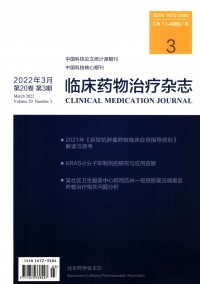常用英語(yǔ)句子
前言:想要寫(xiě)出一篇令人眼前一亮的文章嗎?我們特意為您整理了5篇常用英語(yǔ)句子范文,相信會(huì)為您的寫(xiě)作帶來(lái)幫助,發(fā)現(xiàn)更多的寫(xiě)作思路和靈感。

常用英語(yǔ)句子范文第1篇
1、It doesn't matter.
沒(méi)關(guān)系。
2、What is he talking about?
他在說(shuō)些什么?
3、Congratulations.
恭喜恭喜。
4、Call me tomorrow.
明天打電話給我。
5、She is so smart.
她真聰明。
6、I feel much better.
我感覺(jué)好多了。
7、Don't do it .
不要做。
8、Are you sure?
你能肯定嗎?
9、It's about time .
是時(shí)候了。
10、That's right.
對(duì)了。
11、What did you say?
你說(shuō)什么?
12、I can't believe it .
我簡(jiǎn)直不能相信。
13、I can't wait .
我不能再等了。
14、I'm sorry.
對(duì)不起。
15、I see.
我明白了。
16、Don't tell me that.
不要告訴我。
17、It's easy.
很容易。
18、I don't think so .
我認(rèn)為不是。
19、It's near here.
離這很近。
20、Come with me.
跟我來(lái)。
21、I'm leaving.
我要走了。
22、Me too.
我也一樣。
23、I won.
我贏了。
24、It's different.
那是不同的。
25、It's funny.
很滑稽。
26、Let me know .
告訴我。
27、Thank you very much.
多謝。
28、Are you coming with me?
你跟我一起去嗎?
29、I'm used to it .
我習(xí)慣了。
30、You surprise me.
你讓我大吃一驚。
31、It's the same thing.
還是一樣的。
32、Give me a hand .
幫我一下。
33、Go right ahead.
一直往前走。
34、I would like a cup of coffee, please.
請(qǐng)給我一杯咖啡。
35、He is on his way.
他現(xiàn)在已經(jīng)在路上了。
36、I'm bored.
我很無(wú)聊。
37、Think about it .
考慮一下。
38、I don't like it .
我不喜歡。
39、It's obvious.
很明顯。
40、I'm ready.
我準(zhǔn)備好了。
41、I don't have time .
我沒(méi)時(shí)間了。
42、I noticed that.
我注意到了。
43、That's enough.
夠了。
44、How long are you staying ?
你要呆多久?
45、Do you want something?
你想要些什么?
46、I've got it .
我明白了。
47、It's time to go .
該走了。
48、Buy it .
買(mǎi)下來(lái)!
49、Do it right!
把它做對(duì)。
50、It's not bad.
還行。
51、Do you want it?
你要嗎?
52、Do you see it? = Do you understand?
你明白了嗎?
53、I'll miss you.
我會(huì)想念你的。
54、It's your turn.
輪到你了。
55、It's nothing.
沒(méi)什么。
56、It's incredible!
真是難以置信!
57、I can do it.
我能做。
58、That's true.
這是真的。
59、Do you mean it ?
你是當(dāng)真的嗎?
60、Where is he?
他在哪里?
61、There are too many people here.
這里人很多。
62、It's not difficult.
不難。
63、Believe me.
相信我。
64、See you tomorrow.
明天見(jiàn)。
65、Have a nice day.
祝你一天過(guò)得愉快。
66、Show me .
指給我看。
67、What terrible weather!
多壞的天氣。
68、Is it far?
很遠(yuǎn)嗎?
69、I want to speak with him.
我想跟他說(shuō)話。
70、What's going on/ happening / the problem?
怎么啦?
71、Relax!
放松。
72、I found it .
我找到了。
73、Where are you going ?
你去哪里?
74、He doesn't have time.
他沒(méi)空。
75、Not yet.
還沒(méi)有。
76、I'm having fun.
我玩得很開(kāi)心。
77、I don't know anybody.
我一個(gè)人都不認(rèn)識(shí)。
78、Too bad!
太糟糕啦!
79、I'm busy.
我很忙。
80、I knew it .
我早知道了。
81、Have you finished?
你做完了嗎?
82、Absolutely not.
絕對(duì)不是。
83、It's not worth it .
不值得。
84、You are impatient.
你太*急了。
85、You're lying.
你在撒謊。
86、How are you doing?
你好嗎?
87、She is my best friend .
她是我最好的朋友。
88、I think so .
我認(rèn)為是這樣的。
89、You're welcome.
別客氣。
90、Tell me .
告訴我。
91、It's all right.
沒(méi)關(guān)系。
92、You're in a bad mood.
你的心情不好。
93、I am crazy about her.
我對(duì)她著迷了。
94、That happens.
這樣的事情經(jīng)常發(fā)生。
95、What's the date today?
今天幾號(hào)?
96、That's interesting.
很有趣。
97、As soon as possible.
盡快。
98、You look tired.
你看上去很累。
99、It smells good.
聞起來(lái)很香。
100、Let me see .
讓我想想。
101、You're wrong.
你錯(cuò)了。
102、I hope so .
我希望如此。
103、I'm hungry.
我餓死了。
104、Do you see him often?
你經(jīng)常見(jiàn)到他嗎?
105、Don't exaggerate.
不要夸張。
106、I'll try.
我試試看。
107、They like each other.
他們互相傾慕。
108、What do you think?
你認(rèn)為怎樣?
109、I speak English well.
我英語(yǔ)說(shuō)得很好。
110、It's good.
很好。
111、I am wasting my time .
我在浪費(fèi)時(shí)間。
112、Can you speak slowly?
請(qǐng)您說(shuō)得慢些好嗎?
113、You're crazy.
你瘋了。
114、I've had it .
我受夠了。
115、Wait for me .
等等我。
116、Have a good trip.
祝旅途愉快。
117、You're always right.
你總是對(duì)的。
常用英語(yǔ)句子范文第2篇
1. 經(jīng)濟(jì)的快速發(fā)展 the rapiddevelopment of economy
2.人民生活水平的顯著提高/穩(wěn)步增長(zhǎng)theremarkableimprovement/ steady growth ofpeople’s livingstandard
3.先進(jìn)的科學(xué)技術(shù)advanced science and technology
4.面臨新的機(jī)遇和挑戰(zhàn) be faced with new opportunities and challenges
5.人們普遍認(rèn)為 It is commonly believed/ recognized that…
6.社會(huì)發(fā)展的必然結(jié)果 the inevitable result of social development
7.引起了廣泛的公眾關(guān)注 arouse wide public concern/ draw publicattention
8.不可否認(rèn) Itis undeniable that…/ There is no denying that…
9.熱烈的討論/爭(zhēng)論 a heated discussion/ debate
10.有爭(zhēng)議性的問(wèn)題 a controversialissue
11.完全不同的觀點(diǎn) a totally different argument
12.一些人 …而另外一些人 … Some people… while others…
13. 就我而言/ 就個(gè)人而言 As far as I am concerned, / Personally,
14.就…達(dá)到絕對(duì)的一致 reach an absolute consensus on…
15.有充分的理由支持 be supported by sound reasons
16.雙方的論點(diǎn) argument on both sides
17.發(fā)揮著日益重要的作用 play an increasingly important role in…
18.對(duì)…必不可少 be indispensableto …
19.正如諺語(yǔ)所說(shuō) As the proverb goes:
20.…也不例外 …be no exception
21.對(duì)…產(chǎn)生有利/不利的影響 exert positive/ negative effects on…
22.利遠(yuǎn)遠(yuǎn)大于弊 the advantages far outweigh the disadvantages。
23.導(dǎo)致,引起 lead to/ give rise to/ contribute to/ result in
24.復(fù)雜的社會(huì)現(xiàn)象 a complicated social phenomenon
25.責(zé)任感 / 成就感 sense of responsibility/ sense of achievement
26. 競(jìng)爭(zhēng)與合作精神 sense of competition and cooperation
27. 開(kāi)闊眼界 widen one’s horizon/ broaden one’s vision
28.學(xué)習(xí)知識(shí)和技能 acquire knowledge and skills
29.經(jīng)濟(jì)/心理負(fù)擔(dān) financial burden / psychologicalburden
30.考慮到諸多因素 take many factors into account/ consideration
31. 從另一個(gè)角度 from another perspective
32.做出共同努力 make joint efforts
33. 對(duì)…有益 be beneficial / conducive to…
34.為社會(huì)做貢獻(xiàn) make contributions to the society
35.打下堅(jiān)實(shí)的基礎(chǔ) lay a solid foundation for…
36.綜合素質(zhì) comprehensivequality
37.無(wú)可非議 blameless / beyond reproach
38.加大了…的可能性 increase the chances of
39.致力于/ 投身于 be committed / devoted to…
40. 應(yīng)當(dāng)承認(rèn) Admittedly
41.不可推卸的義務(wù) unshakable duty
42. 滿足需求 satisfy/ meet the needs of…
43.可靠的信息源 a reliablesource of information
44.寶貴的自然資源 valuable natural resources
45.因特網(wǎng) the Internet (一定要由冠詞,字母I
46.方便快捷 convenient andefficient
47.在人類生活的方方面面 in all aspects of human life
48.環(huán)保(的) environmental protection /environmentallyfriendly
49.社會(huì)進(jìn)步的體現(xiàn) a symbol of society progress
50.科技的飛速更新 the ever-accelerated updating of scienceandtechnology
51.對(duì)這一問(wèn)題持有不同態(tài)度 hold different attitudes towards this issue
52.支持前/后種觀點(diǎn)的人 people / those in favor of theformer/latteropinion
53.有/ 提供如下理由/ 證據(jù) have/ provide the followingreasons/evidence
54.在一定程度上 to some extent/ degree / in some way
55. 理論和實(shí)踐相結(jié)合 integratetheory with practice
56. …必然趨勢(shì) an irresistible trend of…
57.日益激烈的社會(huì)競(jìng)爭(zhēng) the increasingly fierce social competition
58.眼前利益 immediate interest/ short-term interest
59.長(zhǎng)遠(yuǎn)利益. interest in the long run
60.…有其自身的優(yōu)缺點(diǎn) … has its merits and demerits/ advantagesanddisadvantages
61.揚(yáng)長(zhǎng)避短 Exploit to the full one’s favorableconditions andavoidunfavorable ones
62.取其精髓,去其糟粕 Take the essence and discard the dregs。
63.對(duì)…有害 do harm to / be harmful to/ be detrimental to
64.交流思想/ 情感/ 信息 exchange ideas/ emotions/ information
65.跟上…的最新發(fā)展 keep pace with / catch up with/ keep abreastwiththe latest development of …
66.采取有效措施來(lái)… take effective measures to do sth。
67.…的健康發(fā)展 the healthy development of …
68.有利有弊 Every coin has its two sides。(不推薦用。。。) No gardenwithout weeds。
69.對(duì)…觀點(diǎn)因人而異 Views on …vary from person to person。
70.重視 attach great importance to…
71.社會(huì)地位 social status
72.把時(shí)間和精力放在…上 focus time and energy on…
73.擴(kuò)大知識(shí)面 expand one’s scopeof knowledge
74.身心兩方面 both physically and mentally
75.有直接/間接關(guān)系 be directly / indirectly related to…
76. 提出折中提議 set forth a compromise proposal
77. 可以取代 “think”的詞 believe, claim, hold the opinion/beliefthat
78.緩解壓力/ 減輕負(fù)擔(dān) relievestress/ burden
79.優(yōu)先考慮/發(fā)展… give (top) priority to sth。
80.與…比較 compared with…/ in comparison with
81. 相反 in contrast / on the contrary。
82.代替 replace/ substitute / take the place of 大寫(xiě))
83.經(jīng)不起推敲 cannot bear closer analysis / cannot hold water
84.提供就業(yè)機(jī)會(huì) offer job opportunities
85. 社會(huì)進(jìn)步的反映 mirror of social progress
86.毫無(wú)疑問(wèn) Undoubtedly, / There is no doubt that…
87.增進(jìn)相互了解 enhance/ promote mutualunderstanding
88.充分利用 make full use of / take advantage of
89.承受更大的工作壓力 suffer from heavier work pressure
90.保障社會(huì)的穩(wěn)定和繁榮 guarantee the stability and prosperity ofoursociety
91.更多地強(qiáng)調(diào) put more emphasis on…
92.適應(yīng)社會(huì)發(fā)展 adapt oneself to the development of society
93.實(shí)現(xiàn)夢(mèng)想 realize one’s dream/ make one’s dream come true
94. 主要理由列舉如下 The main reasons are listed as follows:
95. 首先 First, Firstly, In the first place, To begin with
96.其次 Second, Secondly, In the second place
97. 再次 Besides,In addition, Additionally,Moreover,Furthermore
98. 最后 Finally, Last but not the least, Above all, Lastly,
常用英語(yǔ)句子范文第3篇
英語(yǔ)自我介紹信
Self Introduction
My name is Li peipei. I was born in Beijing in 1993 and now I was 13 years old. There are five people in my family now: my grandparents my father, my mother, and I. I love the members of my family very much. I was the only child. And when I was small I usually play with my friends in the park.
I am a very easy-going man. So, I have a lot of friends. I love English, because its one of the most famous languages in the world. In the future, I have a good dream, my dreams are going to America for further education and devoting myself to communication. So, in order to make the dream come true, Ill try my best! I believe through my hard working, I am sure the God will provide better chances for me to build up my future career and personal characters.
Thats all, thanks.
英語(yǔ)自我介紹常用十句話
1. I have been for over five years in teh employ of an exporting company.
本人曾經(jīng)前后五年被受雇于出口貿(mào)易公司。
2. I have been in the business for the last ten years, and worked as the superintendent in the personnel department.
本人在過(guò)去十年在商界擔(dān)任人事部主任迄今。
3. I have had five years experience with a company as a salesman.
本人曾在某一公司擔(dān)任推銷員,前后有五年之久。
4. For the past three years, I have been in the office of the Brothers Trading Co., where I have been ad still am an accountant.
本人曾經(jīng)在兄弟貿(mào)易公司服務(wù)三年,擔(dān)任會(huì)計(jì)工作,現(xiàn)仍在職中。
5. I am twenty years of age, and have been employed for the last two years by the Green Trees Co., in teh general clerical work of the office.
我今年20歲,曾于綠林公司服務(wù)兩年,擔(dān)任一般文員工作。
6. I am 25 years of age, and have had two years experience in my present post, which I am leaving to better myself.
我今年25歲,已在目前的職位工作兩年,茲為尋找更上一層樓,準(zhǔn)備離開(kāi)此職位。
7. I am nineteen years of age, female and have had two years experience in a companys delivery office.
我今年19歲,女性。曾在某家公司擔(dān)任收發(fā)工作兩年。
8. I am just leaving school, and am eighteen years of age.
本人18歲,不久即可畢業(yè)。
9. I am twenty years of age, and am anxious to settle down to office work.
本人20歲,希望能找到一個(gè)公司,以便安定下來(lái)。
10. Since my graduation from the school two years ago, I have been employed in teh Green Hotel as a cashier.
兩年前,自從離校后,在格蘭酒店擔(dān)任出納員。
自我介紹用語(yǔ)大全之問(wèn)候類
1.Good morning everyone.
大家早上好。
2.Good afternoon, ladies and gentlemen.
先生們,女士們下午好。
3.Good evening, teachers and fellow students.
老師們,同學(xué)們晚上好。
4.Its my great honor to introduce myself to you here.
很榮幸在這兒向大家作自我介紹。
5.Its my pleasure to introduce myself to you here.
我很高興在這兒向大家作自我介紹。
6.Im very happy to introduce myself to you here.
我很高興在這兒向大家作自我介紹。
7.Im very glad to introduce myself to you here.
我很高興在這兒向大家作自我介紹。
8.I feel very honored to introduce myself to you here.
我感到很榮幸在這兒向大家作自我介紹。
9.It is a great pleasure for me to introduce myself to you here.
我是如此的高興在這兒向大家作自我介紹。
10.It is a privilege to be speaking to you today.
今天能跟你談話真是我三生有幸。
常用英語(yǔ)句子范文第4篇
關(guān)鍵詞:主語(yǔ);對(duì)比;翻譯;手段
在翻譯實(shí)踐中,我們經(jīng)常會(huì)發(fā)現(xiàn),自己能夠正確理解英語(yǔ)句子中的每個(gè)單詞或詞組,但不知為什么譯出的漢語(yǔ)怎么讀都覺(jué)得不通順、不地道。從根本上說(shuō),這是因?yàn)橛h兩種語(yǔ)言之間的差異不僅體現(xiàn)在詞匯層面上,而且還顯著地體現(xiàn)在句子結(jié)構(gòu)上。英語(yǔ)句子結(jié)構(gòu)嚴(yán)謹(jǐn),主語(yǔ)突出,屬屈折性語(yǔ)言;漢語(yǔ)邏輯性強(qiáng),主題突出,屬分析性語(yǔ)言。因此,要提高翻譯水平,必須對(duì)兩種語(yǔ)言的差異有所認(rèn)識(shí),翻譯時(shí)才能有意識(shí)地避免歐化的漢語(yǔ)或漢化的英語(yǔ)。進(jìn)行英漢主語(yǔ)對(duì)比分析是關(guān)鍵,希望它能給我們學(xué)習(xí)英漢兩種語(yǔ)言及互譯帶來(lái)少許裨益。
1 漢英主語(yǔ)對(duì)比
主語(yǔ)在英語(yǔ)句子中是一個(gè)非常重要的成分。其功能很強(qiáng),英語(yǔ)需要把主謂關(guān)系納入一定的關(guān)系中去處理,謂語(yǔ)必須與主語(yǔ)一致,主謂語(yǔ)結(jié)構(gòu)是英語(yǔ)句子的主軸與核心。一般情況下,英語(yǔ)中的主語(yǔ)是不可缺少的。因此,英語(yǔ)的句法特征是形合的。而漢語(yǔ)中的主語(yǔ)功能相對(duì)就較弱,沒(méi)有主語(yǔ)也可以成句。另外漢語(yǔ)中的主謂搭配關(guān)系也十分靈活,通過(guò)語(yǔ)境來(lái)融合其間的語(yǔ)義關(guān)系,形成一種意義上的聯(lián)系,主語(yǔ)和謂語(yǔ)也不需要在數(shù)、時(shí)態(tài)和語(yǔ)態(tài)上保持一致。漢語(yǔ)句法特征是意合的。
1.1主題Vs主語(yǔ)
主語(yǔ)顯著的語(yǔ)言是指該語(yǔ)言的核心句型是主語(yǔ)+謂語(yǔ)構(gòu)成的框架,而主題顯著是指由主題+述題構(gòu)成的句式。主題即句子的起首部分,相當(dāng)于“話題”,述題是針對(duì)“話題”發(fā)表的信息或評(píng)論,通常是“新的信息”。漢語(yǔ)句子的主題可能是名詞結(jié)構(gòu),與主語(yǔ)一致,但在很多情況下還可能是其他成分。
(1)昨天的事多虧你幫忙。
Thank you for your help yesterday.
本句的主題“昨天的事”雖然是個(gè)名詞詞組,但它顯然游離于“主謂”結(jié)構(gòu)之外,不能將其譯成英語(yǔ)的主語(yǔ)。
1.2有靈Vs 無(wú)靈
英語(yǔ)與漢語(yǔ)句子的另一個(gè)重要差異是,英語(yǔ)常用無(wú)靈主語(yǔ),即用無(wú)生命的物體或抽象概念的名詞或各種形式的非謂語(yǔ)動(dòng)詞充當(dāng)主語(yǔ)。而漢語(yǔ)則常用有靈主語(yǔ),即用有生命的人或動(dòng)物作主語(yǔ)。英語(yǔ)較注重“什么事發(fā)生在什么人身上”,而漢語(yǔ)則較注重“什么人怎么樣了”。
(3)我一想到還要在這里再呆一年就渾身不舒服。
The thought of spending another year makes me physically sick.
漢語(yǔ)句子用的是有靈主語(yǔ)“我”,可英譯文中卻沒(méi)有用I作主語(yǔ),而是用了無(wú)靈主語(yǔ)thought,這一點(diǎn)正符合了英語(yǔ)中“什么事發(fā)生在什么人身上”的表達(dá)。
1.3零主語(yǔ)Vs 形式主語(yǔ)
英語(yǔ)句子常常必須有主語(yǔ),有時(shí)找不到表示事物或人的名詞或代詞作主語(yǔ)時(shí),就用“it”作形式主語(yǔ)。尤其在表示天氣、時(shí)間、距離、度量等概念時(shí),這種與漢語(yǔ)思維方式的差異就顯得尤為突出。相比較而言,漢語(yǔ)中主語(yǔ)的使用靈活得多,而且常常可以省略。只要通過(guò)上下文可以判斷句子的主語(yǔ),主語(yǔ)就沒(méi)必要出現(xiàn),此時(shí)所用的就是我們常說(shuō)的“零位主語(yǔ)”。英語(yǔ)中的形式主語(yǔ)是漢語(yǔ)所沒(méi)有的,而漢語(yǔ)的零位主語(yǔ)在英語(yǔ)中也是不存在的。
(4)刮風(fēng)了。下雨了。
常用英語(yǔ)句子范文第5篇
先說(shuō)這類題的出題形式吧!這類題一般采用根據(jù)給出的漢語(yǔ)句子完成英語(yǔ)句子的形式,一般空出幾個(gè)空,空格內(nèi)有時(shí)限填一個(gè)詞,有時(shí)不限制詞數(shù)。要求同學(xué)們補(bǔ)全空格從而使所要表達(dá)的意思完整。還有一種出題形式是給出漢語(yǔ)句子和幾個(gè)英語(yǔ)單詞,要求把這幾個(gè)詞按照漢語(yǔ)意思排列正確的順序,有時(shí)還需要加上幾個(gè)詞。
那么翻譯填空題常把哪些部分空出來(lái)呢?即它常考查哪些內(nèi)容呢?先看幾道題吧!
1.多喝水,這對(duì)你的健康有好處。
Drinkmorewater.It___________________________yourhealth.
2.外面正下著大雨,你最好呆在家里。
It\'srainingheavilyoutside.You\'d
__________________athome.
3.這個(gè)故事和那個(gè)故事一樣有趣。
thisstory,is,interesting,thatone
________________________________
根據(jù)以上各題不丟臉出翻譯填空題所考查的主要內(nèi)容:(1)一些常用詞組和短語(yǔ)。如:begoodfor等。(2)一些常用詞語(yǔ)的用法。如:hadbetter后接動(dòng)詞原形等。(3)一些常用句型、句式。如:as...as等。這類題的解題步驟是什么呢?
第一步,先讀一下漢語(yǔ)句子,了解這個(gè)句子所要表達(dá)的意思。
第二步,跳過(guò)空格讀一下已給出的那部分英文內(nèi)容,然后再仔細(xì)分析一下要求翻譯的英語(yǔ)。
第三步,觀察一下要求翻譯的漢語(yǔ),然后聯(lián)想一下相關(guān)詞匯和句型,再考慮語(yǔ)態(tài)、時(shí)態(tài)、詞形變化、主語(yǔ)和主謂一致等新題目。
第四步,試填空格。不要一看空格就填,有的同學(xué)一看“照顧”就填lookafter,實(shí)際上根據(jù)情況還可填takecareof或takegoodcareof。若對(duì)第一個(gè)空格要填的詞沒(méi)有把握時(shí),可試看從下文中得到啟示?
第五步,將已填好的句子再讀一遍,從時(shí)態(tài)、語(yǔ)態(tài)、詞形、數(shù)的一致等方面檢查一下,若一切沒(méi)新題目,該題就OK了。
解題步驟把握了,做題時(shí)還要注重可以縮寫(xiě)的詞匯。由于這類題的空格是一定的,多填或少填都是不對(duì)的,即使意義相符也分歧乎答題要求。填空時(shí)一定要靈活。
看看上面幾個(gè)題的答案吧!第一題考查的是詞組begoodfor,應(yīng)填isgoodfor;第二題考查hadbetter后用動(dòng)詞原形,填betterstay;第三題答案為:Thisstoryisasinterestingasthatone.


